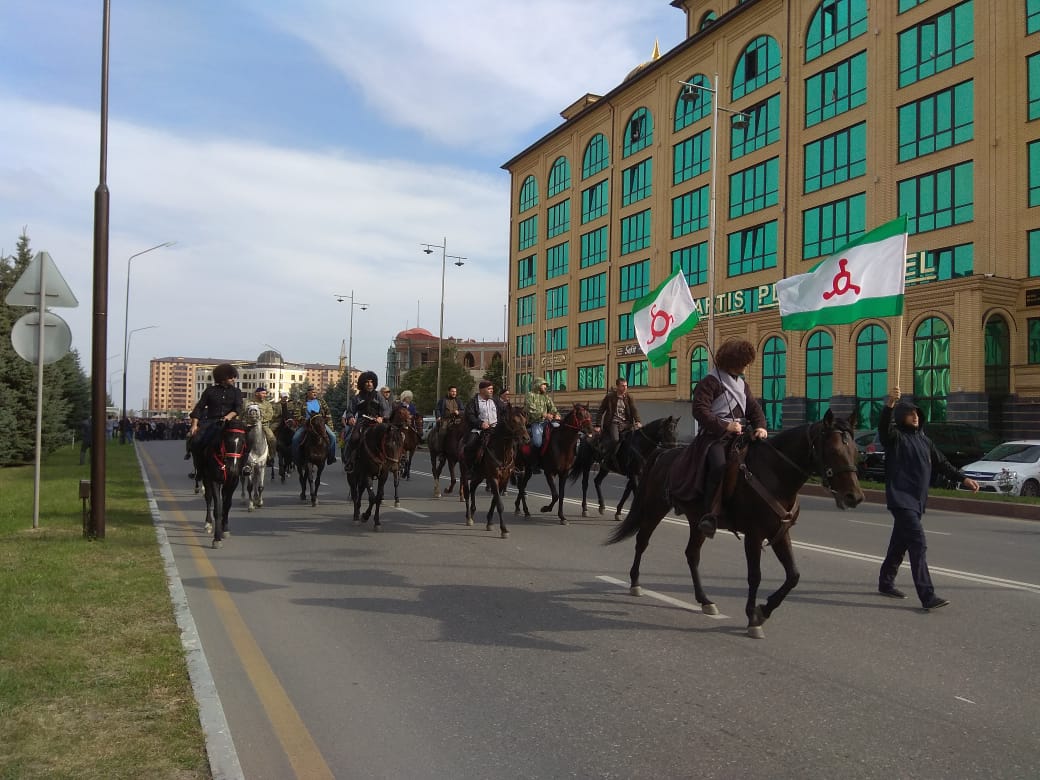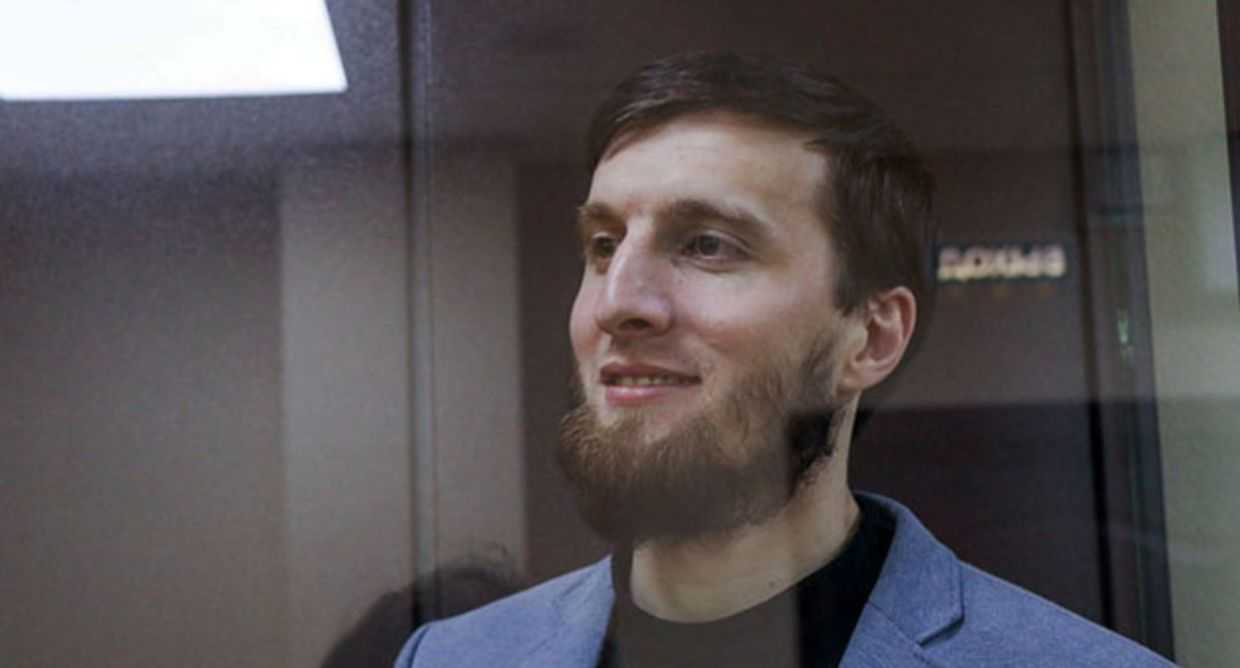

A Russian court has convicted three people for their participation in protests in the Ingush capital Magas on 26–27 March, the first of 34 arrested in the wake of the protests.
The Zheleznovodsk City Court in Stavropol Krai sentenced the defendants to between four months and 1 year and five months last week.
All three pleaded guilty of using violence against government representatives, which carries a maximum sentence of 5 years in prison.
The trials were carried out using a ‘special order’, an expedited process in which the defendants confess to all the charges against them in exchange for a lesser sentence.
The three were arrested along with 31 others following protests in Magas on 26–27 March, which escalated into clashes with the National Guard. Russian rights group Memorial recognised six of them as political prisoners.
The protestors’ main demand was the resignation of then–head of Ingushetia, Yunus-Bek Yevkurov and the cancellation of a border agreement with Chechnya signed on 26 September 2018.
Under the widely unpopular deal signed by Yevkurov and his Chechen counterpart Ramzan Kadyrov, Ingushetia handed around 340 square kilometres (9% of its territory) to Chechnya.
‘Admitted their guilt’
The first verdict was handed down on 12 December against fitness trainer Ramazan Gagiyev, who according to the Russian Legal Information Agency (RAPSI), fully admitted his guilt.
‘The court found that at 7:30 in the [central square of Magas], Gagiyev struck with his foot the shield of National Guardsman Pakhomov, who suffered pain in the wrist of his left hand’, the verdict said, according to RAPSI.
Gagiyev was sentenced to 4 months in a penal colony but was released immediately considering time served.
The next day, on 13 December, the court sentenced Seyt-Magomed Nalgiyev to 16 months in a penal colony.
Khavaz Yevgazhukov, Nalgiyev’s lawyer, told OC Media that they accused his client of having pressed a National Guard officer with a metal fence, having first grabbed a rubber baton from him, and as a result, the officer felt pain.
According to Yevgazhukov, ‘the trial went well, the case was examined in a special order, the state prosecution was objective’.
‘The video from the rally on 26–27 March shows how Nalgiyev, as part of the crowd, fell along with the fence and fell on an employee of the National Guard’, he added.
According to Yevazhukov, Nalgiyev had extenuating circumstances and positive characteristics: ‘he worked in the Ministry of Emergencies, he has awards, and participated in the victory parade on Red Square three times’.
‘My client pleaded guilty and repents. After the verdict comes into force, he will be released in ten days’, he said.
On Monday, the third man, Zelimkhan Tomov, was sentenced to 1 year and 5 months. The prosecutor had requested he be given 1 year 3 months.
Given the time spent in the pre-trial detention, Tomov will be free on 25 December, his lawyer, Aslan Archakov, told OC Media.
‘A precedent’
Russian lawyer Andrey Sabinin, who is defending several of the Magas protesters, told OC Media that these rulings have set a precedent for the upcoming verdicts.
‘All of them were handed down as part of a guilty plea by the defendants’, he said.
‘In any case, it’s clear that a decision was made not to imprison those who chose a special order. I think that for the rest, who are the majority, the terms will be longer, and they will not go free so quickly’.
According to Sabinin, the guilty pleas by Gagiyev, Nalgiyev, and Tomov will not necessarily directly work against those accused of organising the protest.
However, he said that their guilty please included admitting that their actions were committed ‘under the influence and authority of the [protest] leaders’.
Sabinin said that in cases tried under a ‘special order’, guilt can only be fully admitted, ‘therefore, these sentences can provide an opportunity for the investigation and prosecution in the future to use [their confessions] as evidence of the guilt of the [protest] leaders’.
‘A “special order” sentence can be used as evidence in a criminal case [against another] without further verification’, Magomed Bekov, a lawyer of one of the protest leaders told OC Media.
He said that those who refused the special order have recognised that they used violence but have refused to implicate the protest leaders.
‘None of them testified that the protest leaders incited them to violence against government officials’, Bekov said.
‘This fact will not affect the verdict against the leaders since the court will make a political decision. It all depends on the will of the [Moscow], which in my opinion, is giving instructions on what the deadlines should be’, he added.







